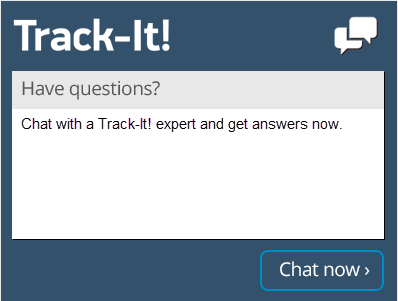Help Desk Software Beginners Guide
Help desk software is an IT department’s program used to support an organization’s hardware, software, and security assets. This help desk software beginners guide will help you understand what help desk software is and how good help desk software can help your organization.
What Is Help Desk Software
Help desk ticketing software helps businesses provide their staff with the right support when and how they need it. This software can be customized based on the needs of the individual business. Companies are able to add custom information into the software in the form of knowledge articles. This helps the IT staff support employees on common and uncommon potential software and hardware queries.
The application has a digital ticketing system to enable help desk technicians to sort and service tasks based on the severity, type of issue or question asked. It can also help arrange a call from a representative in case a customer needs extra help to sort out a problem.
Help Desk Software Can Help Businesses of All Sizes
Irrespective of the size of the business, we recommend that you use some type of help desk software. These programs help to streamline the operation of the business and can make the life of everyone involved a little bit easier. It doesn’t matter what type of industry you are in or whether you are selling products or services.
This software will make it easier for IT to address concerns from your employees in a timely fashion based on the highest priority first. Another benefit of this type of system is it helps to ensure no staff or department’s query goes unrecorded, unattended or remains unresolved for an extended amount of time.
Regardless of size, it is crucial that issues that affect productivity be resolved to remain viable and profitable. Let’s take a look at what big businesses need and what small and medium businesses should look out for:
Big Businesses
Businesses that have large amounts of data or a large number of workers can benefit most from a good help desk ticketing software. The first benefit is the software allows large businesses to categorize various issues and give easy solutions to the staff. These solutions should follow the Information Technology Infrastructure Library (ITIL) guidelines. Having this feature will free up time for the IT staff to handle more complex issues.
The ITIL guidelines help a business operate through procedures, tasks, processes, and checklists. These items provide a deeper level of value to not only the employees but their customers as well. They outline what help desk agents need to do to assist as many workers as possible. In the end, this allows all employees to get back to their responsibilities faster.
Small and Medium Businesses
A small business should have a help desk software that integrates with their existing systems. This prevents a company from having to rebuild its processes during a time of expansion or growth. It also allows businesses to prepare to expand if that is the ultimate goal of the company.
What Does a Help Desk Team Consist Of?
There are 3 main positions in most IT help desks. Each position has its own specific role in making sure the business stays up and running at peak efficiency at all times. Here is what you can expect as far as the IT specialists who will be operating your help desk:
Help Desk Manager
The help desk manager handles the daily operations of the help desk team. Their responsibilities include hiring, training, and supervising agents to monitor performance metrics. They usually oversee the budget and report back to the executive team as well.
Help Desk Team Leader
The help desk team leader is an extension of the Manager. They tend to spend more time with the agents to coach them and manage the team’s goals. They make sure Service Level Agreements are being met and provide feedback to the manager. This feedback is to ensure they have a productive and improving process. In some smaller organizations, the Help Desk Manager and Team Leader role are handled by the same person.
Help Desk Agent
The help desk agents are the front line of your IT staff. They are your contact point for all software and hardware issues. The agents are often separated into different tiers based on experience and skill level. The top tier has the most responsibility, which includes coaching junior agents and updating the knowledge base.
Knowledge Manager
In some organizations, the task of creating and managing Knowledge Articles is assigned to a specific role. This person is responsible for researching the solutions that have been used by Help Desk Agents to solve particular problems. The Knowledge manager looks for recurring issues that happen regularly, then works to document them along with the proper steps to resolve them. These documents become Knowledge Articles that the Help Desk Agents can leverage when helping users. The Knowledge Manager also maintains existing articles to keep them up to date or removes or archives articles that are no longer relevant. In some smaller organizations, this role is a part time one handled by a Help Desk Agent.
Each of these service desk workers are very adept in the field of technology and operational performance. They are there at a moment’s notice to help make sure that you and your employees stay productive and connected.
Features to Look for in Your Help Desk Software
There are many things you should consider when looking into obtaining help desk software for your company. You first need to understand what the program features are capable of doing. Then decide on the features necessary that will streamline and improve the technology and operations of your company.
Let’s take a look at two of the most important features:
This may be the most critical feature when looking to integrate help desk software. The help desk support and ticketing feature will prevent undue workload on the agents. The program allows agents to sort tickets to get information about the problem and time waiting for a solution. It will even help with deciding which IT specialist is best suited to handle a specific issue and how critical the issue is, even assigning specific dates or times by which the issue needs to be corrected. Taken a step further, the system should also be able to notify Agents when items have not been resolved quickly enough or even escalate the issues to higher level Agents if not resolved on time. This system helps to make sure that the agent handling each ticket is the most qualified to perform the task. This feature helps with keeping undue confusion and stress off the help desk staff.
A good help desk software system should have an area to document known issues and their solutions so the Help Desk Agents do not have to figure the same problems out again and again. This library of solutions allows the work of one agent to benefit all other agents who may run into the same issues later on.
Good monitoring and reporting are crucial for making decisions and working toward improvements. This is why having a good dashboard for monitoring and building reports within help desk software is so important.
When you have access to a report generation tool, it gives you the opportunity to see what questions, concerns, or problems your services or products are encountering most. You can also see the progress of the IT specialists in real-time and track the number of issues resolved. It also stores these reports to make audits and reviews simpler and faster down the road.
Other Features to Consider
Many Help Desk systems include other features for network scanning and asset discovery, endpoint management, patch management, software deployment, remote management and other helpful features. Looking for a good system that includes all of these items or at least offers them as an option is a good place to start.
Why Good Help Desk Software Matters?
There is a lot of competition in today’s global marketplace. For any business to thrive, it is vital to deal with the most complicated issues preventing achievement and growth. Oftentimes the biggest problems are those within the company faced by employees.
This is not to say that customer service and satisfaction are not important. A poor product or customer service can prevent growth. Most companies focus more on these external issues when the internal issues are sometimes the bigger problem.
If you are having IT issues or other software or hardware problems in your office, those should become your highest priority. No matter how well trained and experienced your IT staff might be, the problems could get out of control.
Signs of things getting out of control are usually unnecessary employee downtime and, even worse, a loss of productivity and profit. This is usually due to the process of receiving, organizing, and resolving problems being inefficient.
As businesses grow, so do these types of problems. This is where utilizing the services of an IT help desk may be one of the best decisions you could possibly make for your business.
Yet, even the best organized and thorough IT department will run into countless unique and complex issues. It could be as simple as a frozen computer screen or something more complicated that could take a lengthy amount of time to resolve. Handling the various issues that employees have quickly is something that a help desk makes sure is a top priority.
The goal for any business is to not only provide a quality product, service, or solution for its customers or clients. It also has to ensure that its employees are able to do their part in that process. This is where making sure that your IT help desk can handle technical issues is critical to your reputation as a company and its bottom line.
By doing this, you ensure the continuity of all of your divisions and departments, whether they be manufacturing and production, sales, or service. This, in turn, provides your business with better opportunities for growth and long-term success.
Your workers depend on your IT service staff. They need to know that when they call the help desk that someone will be there to either walk them through their issue or guide them to a resource that will. If your current IT personnel are not able to handle problems, it will become an issue that your entire company may suffer from as a result.
With the help of products such as help desk ticketing software, the technical support executives can keep track of who needs help when and what they need help with. Additionally, the software allows for the organization of procedures and helps agents answer each call or query when it arrives. The goal should be to provide a valuable answer in as quick a time as possible, and the right type of software provides that solution. We hope this help desk beginners guide has helped you to understand why help desk software is important to the success of every IT department.





